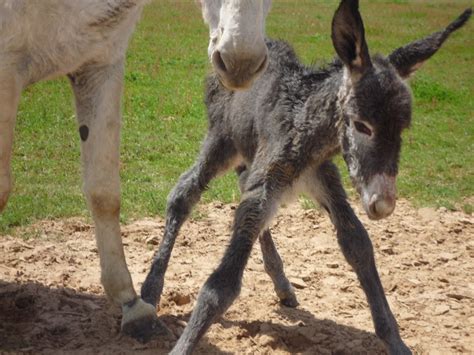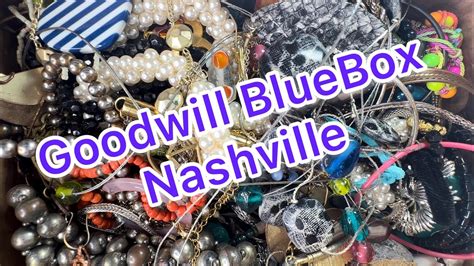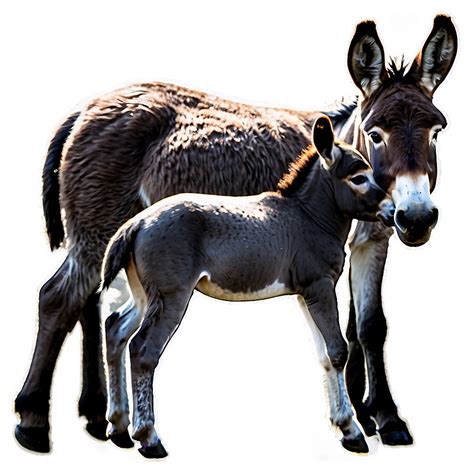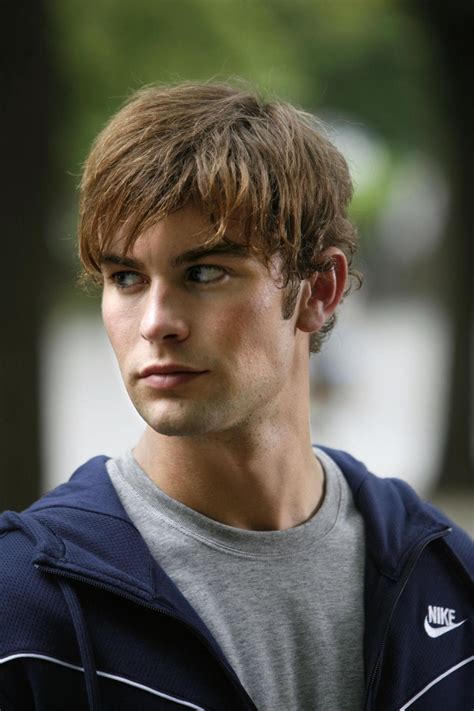
A donkey in Ireland has become an unlikely hero after seemingly stepping in to “babysit” a newborn foal, providing comfort and companionship while the mother grazed nearby.
In County Galway, Ireland, a heartwarming scene unfolded as a donkey named Gus took on an unexpected role: caregiver to a newborn foal. The foal’s owner, Tracey McNamara, captured the touching moments on video, showcasing Gus’s gentle interaction with the young horse. McNamara, who has a background in animal care and horse management, witnessed Gus standing protectively over the foal, offering a sense of security and comfort. The footage, shared widely on social media, has garnered significant attention, highlighting the unique interspecies bond and the intuitive nature of animals. According to McNamara, Gus’s actions weren’t just a one-off event but part of a recurring pattern where he demonstrates protective behavior towards the foal, allowing the mother to graze peacefully.
The incident took place on McNamara’s farm in County Galway, where she keeps a variety of animals, including horses and donkeys. The foal, a lively and inquisitive young animal, was born just days before the interaction was observed. McNamara noted that Gus, a resident donkey, immediately showed interest in the newborn, approaching it cautiously and exhibiting signs of curiosity. Initially, she monitored the situation closely, ensuring that Gus’s presence didn’t distress the mother or pose any risk to the foal. However, it quickly became evident that Gus’s intentions were purely benevolent.
“Gus is incredibly gentle by nature, but I was still surprised to see him take such an active role in looking after the foal,” McNamara stated. “He stands guard, nudging the foal gently and ensuring it stays close. It’s like he understands the need to protect it.”
McNamara, who has been involved in animal care for many years, was particularly struck by the interspecies bond. “You often hear about dogs and cats forming close relationships, but seeing a donkey care for a foal in this way is truly special,” she remarked. “It highlights the capacity for empathy and compassion that animals possess, regardless of their species.”
The video footage captured by McNamara shows Gus standing attentively over the foal while the mother grazes a short distance away. Gus occasionally nudges the foal with his nose, seemingly reassuring it and keeping it close. The foal, in turn, appears comfortable and secure in Gus’s presence, often resting its head against the donkey’s side.
McNamara has shared the video on various social media platforms, where it has been viewed thousands of times. Many viewers have commented on the heartwarming nature of the interaction, praising Gus for his protective instincts and gentle demeanor. The video has also sparked discussions about the intelligence and emotional capabilities of donkeys, challenging common stereotypes about the animals.
Donkeys, often regarded as stubborn or unintelligent, are in fact highly social and intelligent animals with a strong sense of empathy. They form close bonds with their herd members and are known to exhibit protective behavior towards vulnerable individuals. In many cultures, donkeys have been used as companion animals for horses, providing a calming and reassuring presence.
“Donkeys have a natural ability to bond with other animals, and they can be incredibly beneficial in a farm setting,” McNamara explained. “They are often used as guard animals to protect livestock from predators, and they can also provide emotional support to horses, especially those that are anxious or stressed.”
The story of Gus and the foal has not only captured the hearts of animal lovers but also highlighted the importance of understanding and appreciating the unique qualities of different species. It serves as a reminder that animals are capable of complex emotions and behaviors, and that interspecies bonds can be just as meaningful as those within a single species. McNamara hopes that the video will inspire others to view donkeys in a new light and to recognize their potential as compassionate and intelligent companions.
“I think Gus’s story is a testament to the power of empathy and the ability of animals to connect with one another on a deep level,” she said. “It’s a reminder that we are all part of a larger web of life, and that even the most unexpected friendships can blossom in the most surprising circumstances.”
The popularity of the video has also led to increased interest in McNamara’s farm and her work with animals. She has received numerous messages from people expressing their admiration for Gus and their appreciation for her dedication to animal welfare. McNamara hopes to use the attention to raise awareness about the importance of responsible animal ownership and the benefits of providing animals with a safe and nurturing environment.
“I believe that all animals deserve to be treated with kindness and respect, and that we have a responsibility to provide them with the best possible care,” she stated. “By sharing Gus’s story, I hope to inspire others to take a more compassionate approach to animal welfare and to recognize the unique contributions that animals make to our lives.”
The story of Gus, the donkey babysitter, is a heartwarming reminder of the unexpected bonds that can form in the animal kingdom and the empathy that exists across species lines. It underscores the intelligence and emotional depth of donkeys, challenging preconceived notions and highlighting their capacity for care and protection. The tale continues to resonate with audiences worldwide, reinforcing the importance of animal welfare and the profound connections we share with the creatures around us.
The unfolding narrative of Gus and the foal serves as a potent reminder of the intricate tapestry of life that weaves through farms and pastures. The simple act of observing and sharing this interspecies interaction offers a glimpse into the complex social dynamics and emotional intelligence present in animals often overlooked.
McNamara’s commitment to documenting and sharing these moments has not only brought joy to countless viewers but has also sparked a broader conversation about animal behavior, interspecies relationships, and the ethical considerations surrounding animal care. The narrative transcends mere entertainment, prompting reflection on the human-animal bond and our responsibilities as stewards of the natural world.
Beyond the immediate charm of the video, the story of Gus and the foal illuminates the profound impact that animals can have on our lives. Their capacity for empathy, loyalty, and unconditional love enriches our existence and challenges us to cultivate a more compassionate and sustainable world. The viral attention garnered by Gus serves as a powerful platform to advocate for responsible animal ownership, promote ethical treatment, and foster a deeper appreciation for the inherent worth of every living creature.
In an era often dominated by human-centric narratives, the story of Gus offers a refreshing perspective, reminding us of the interconnectedness of all living things and the importance of recognizing and celebrating the unique contributions of each species to the delicate balance of our planet. The enduring appeal of this heartwarming tale lies in its ability to evoke a sense of wonder, inspire hope, and reaffirm our shared responsibility to protect and cherish the animal kingdom.
Moreover, the story of Gus, the donkey babysitter, provides an opportunity to delve deeper into the role of donkeys in agriculture and animal companionship. Traditionally, donkeys have been utilized as working animals, providing transportation and assistance in farming practices. However, their potential as companion animals and emotional support providers is increasingly being recognized. Donkeys possess a calm and gentle demeanor that can have a soothing effect on other animals, particularly horses. Their presence can reduce stress and anxiety in herd environments, promoting overall well-being.
McNamara’s observations regarding Gus’s protective behavior towards the foal shed light on the complex social dynamics within mixed-species groups. While interspecies interactions are often driven by instinctual behaviors such as predator-prey relationships, the case of Gus and the foal demonstrates the capacity for empathy and altruism in animals. The donkey’s willingness to care for and protect a member of another species suggests a level of cognitive and emotional complexity that challenges conventional assumptions about animal behavior.
Furthermore, the story of Gus highlights the importance of providing animals with opportunities to express their natural behaviors. In a farm setting, allowing animals to interact with one another and form social bonds can enhance their quality of life and contribute to their overall well-being. McNamara’s decision to allow Gus to interact with the foal, while closely monitoring the situation, allowed the donkey to express his natural instincts and form a meaningful connection with the newborn.
The viral success of the video showcasing Gus’s interaction with the foal underscores the public’s fascination with animal behavior and the power of social media to disseminate heartwarming stories. The widespread sharing of the video has not only brought joy to viewers but has also raised awareness about the intelligence and emotional capabilities of donkeys. This increased visibility can help to challenge negative stereotypes and promote a more positive perception of these often-overlooked animals.
In conclusion, the story of Gus, the donkey babysitter, is a testament to the power of interspecies bonds and the capacity for empathy in animals. It highlights the importance of responsible animal ownership, the benefits of providing animals with opportunities to express their natural behaviors, and the potential of social media to raise awareness about animal welfare issues. The tale serves as a reminder that animals are capable of complex emotions and behaviors, and that by fostering a more compassionate and understanding approach to animal care, we can create a more harmonious and sustainable world for all living creatures.
The narrative surrounding Gus and the foal extends beyond a simple heartwarming tale, delving into the scientific understanding of animal behavior and cognition. Studies in animal cognition have increasingly demonstrated that many species possess complex emotional lives and problem-solving abilities. The behavior exhibited by Gus, such as protective caregiving, resonates with research suggesting that empathy and altruism are not exclusively human traits.
The growing field of ethology, which studies animal behavior in natural settings, provides a framework for understanding the interactions between different species. Ethologists have observed numerous instances of interspecies cooperation and mutualism, where animals from different species work together to achieve a common goal. While the specific motivations behind Gus’s behavior are difficult to ascertain definitively, his actions align with patterns of caregiving and social bonding observed in other animal species.
Moreover, the story of Gus raises questions about the role of domestication in shaping animal behavior. Donkeys have been domesticated for thousands of years, and selective breeding has likely influenced their temperament and social tendencies. While domestication can alter certain aspects of animal behavior, it does not necessarily diminish their capacity for empathy or their ability to form meaningful relationships with other animals.
The widespread interest in Gus’s story also reflects a growing awareness of the ethical considerations surrounding animal welfare. As societies become more attuned to the needs and rights of animals, there is increasing demand for humane treatment and responsible care. The story of Gus serves as a reminder that animals are not simply commodities but sentient beings capable of experiencing a range of emotions and deserving of our respect and compassion.
The viral popularity of Gus’s story can also be attributed to the power of narrative in shaping public perceptions. Stories that evoke positive emotions, such as joy, hope, and empathy, tend to resonate deeply with audiences and are more likely to be shared widely on social media. The tale of Gus and the foal provides a compelling narrative that challenges conventional assumptions about animal behavior and promotes a more positive view of donkeys.
In addition to its emotional appeal, the story of Gus also offers valuable lessons about the importance of observation and documentation in understanding animal behavior. McNamara’s decision to capture the interaction on video has not only brought joy to countless viewers but has also provided valuable insights into the complex social dynamics within her farm. By sharing her observations, McNamara has contributed to a growing body of knowledge about animal behavior and has inspired others to take a closer look at the animals in their own lives.
The story of Gus, the donkey babysitter, serves as a microcosm of the larger interconnectedness of life on Earth. It reminds us that animals are not isolated entities but integral parts of complex ecosystems and social networks. By fostering a greater understanding and appreciation of animal behavior, we can promote a more sustainable and compassionate approach to our relationship with the natural world.
The impact of Gus’s story extends beyond the immediate context of McNamara’s farm, reaching into broader discussions about animal welfare, conservation, and the human-animal bond. The story has the potential to inspire positive change in attitudes and behaviors towards animals, promoting more ethical treatment and greater respect for their inherent worth.
Furthermore, the tale of Gus highlights the importance of supporting local farmers and animal sanctuaries that prioritize the well-being of their animals. By choosing to purchase products from farms that adhere to high standards of animal welfare, consumers can contribute to a more sustainable and ethical food system. Similarly, supporting animal sanctuaries that provide a safe and nurturing environment for rescued animals can help to promote animal welfare and conservation efforts.
The enduring appeal of Gus’s story lies in its simplicity and authenticity. It is a tale of unexpected friendship, empathy, and the inherent goodness of animals. It reminds us that even in a world often dominated by negativity and division, there is still room for kindness, compassion, and connection. The story of Gus, the donkey babysitter, is a heartwarming reminder of the best qualities of both animals and humans, and it serves as a beacon of hope for a more compassionate and sustainable future.
Frequently Asked Questions (FAQ)
-
What exactly did the donkey, Gus, do? Gus was observed standing protectively over a newborn foal on Tracey McNamara’s farm in County Galway, Ireland. He gently nudged the foal, seemingly keeping it close and providing comfort while the mother grazed nearby. McNamara described it as Gus “babysitting” the foal.
-
Where did this happen, and who owns the animals? This occurred on Tracey McNamara’s farm in County Galway, Ireland. McNamara, who has experience in animal care and horse management, owns the donkey (Gus) and the foal.
-
Why is this story significant? The story is significant because it highlights an unusual interspecies bond between a donkey and a foal, demonstrating empathy and care across species lines. It also challenges common stereotypes about donkeys and showcases their potential as compassionate companions. McNamara stated it “highlights the capacity for empathy and compassion that animals possess, regardless of their species.”
-
Has there been any scientific study behind why the donkey behaved this way? While there’s no specific scientific study cited for this incident, the article connects Gus’s behavior to existing knowledge about donkey behavior. Donkeys are known to be social animals that form bonds within herds and have been observed to protect vulnerable individuals. Ethology and animal cognition studies support the idea that empathy and altruism exist in various species.
-
How can people help animals in similar situations? People can support responsible animal ownership by adopting from reputable shelters or rescues, ensuring their pets receive proper care and socialization, and reporting any suspected cases of animal abuse or neglect. Supporting local farms that prioritize animal welfare and contributing to animal sanctuaries are also valuable ways to help.
Here are five additional frequently asked questions:
-
Are donkeys naturally inclined to protect other animals? While not all donkeys exhibit the same protective behaviors, they are generally known to be social and empathetic animals. Their natural herd instincts can extend to other species, particularly vulnerable ones like foals. Donkeys have historically been used as guard animals to protect livestock from predators, demonstrating their protective capabilities. Their calm demeanor can also provide emotional support to other animals, reducing stress and anxiety.
-
What are the benefits of having donkeys on a farm with other animals? Donkeys can be beneficial additions to a farm due to their social nature and protective instincts. They often form strong bonds with other animals, including horses, cattle, and sheep. Their presence can deter predators, such as coyotes and stray dogs, providing a sense of security for the entire herd. Additionally, donkeys can help to control vegetation by grazing on weeds and unwanted plants. Their calm demeanor can also have a soothing effect on other animals, reducing stress and promoting overall well-being. McNamara has used donkeys as companion animals for horses, providing a calming and reassuring presence.
-
How did Tracey McNamara capture the interaction between Gus and the foal? Tracey McNamara captured the interaction between Gus and the foal on video. The footage, shared widely on social media, has garnered significant attention and showcased the unique interspecies bond.
-
What impact has the video of Gus and the foal had on social media? The video has been viewed thousands of times on various social media platforms and has received numerous positive comments. Viewers have praised Gus for his protective instincts and gentle demeanor. The video has also sparked discussions about the intelligence and emotional capabilities of donkeys, challenging common stereotypes. The viral success of the video underscores the public’s fascination with animal behavior and the power of social media to disseminate heartwarming stories.
-
What does this story tell us about the emotional lives of animals? The story of Gus and the foal highlights the complexity and depth of the emotional lives of animals. It demonstrates that empathy, compassion, and altruism are not exclusively human traits and that animals are capable of forming meaningful relationships with members of other species. The story challenges conventional assumptions about animal behavior and promotes a more nuanced understanding of the emotional and cognitive capabilities of animals. It reinforces the importance of treating animals with kindness and respect and recognizing their inherent worth.
Here are five more FAQs that cover other aspects of the article:
- Are donkeys typically used as “babysitters” for other animals?
While not their primary purpose, donkeys have been known to form strong bonds with other animals and exhibit protective behaviors. Their calm and gentle nature can provide comfort and security to vulnerable animals like foals. However, formal “babysitting” is not a common or officially recognized role for donkeys in animal husbandry.
- What are some common misconceptions about donkeys?
Common misconceptions include the belief that donkeys are stubborn, unintelligent, or only useful for manual labor. In reality, donkeys are intelligent, social animals capable of forming strong bonds and exhibiting empathy. They possess a calm and gentle demeanor that can be beneficial in various settings, including as companion animals.
- How does this story contribute to the discussion about animal welfare?
The story promotes animal welfare by highlighting the importance of recognizing and respecting the emotional and cognitive capabilities of animals. It encourages people to view animals as sentient beings capable of experiencing a range of emotions and deserving of compassionate treatment. By showcasing the positive interactions between Gus and the foal, the story inspires others to take a more humane approach to animal care and promote responsible animal ownership.
- What is Tracey McNamara’s background in animal care?
Tracey McNamara has a background in animal care and horse management, which contributes to her understanding and ability to observe and interpret the interactions between her animals. Her experience allows her to provide a safe and nurturing environment for her animals and to recognize the unique contributions that each species makes to the farm.
- What are the long-term implications of this story for the perception of donkeys?
The story has the potential to improve the perception of donkeys by challenging negative stereotypes and showcasing their positive qualities. By highlighting their intelligence, empathy, and protective instincts, the story can inspire greater appreciation for donkeys and promote their use as companion animals and emotional support providers. The increased visibility of donkeys in a positive light can also lead to greater advocacy for their welfare and conservation.
Here are five final FAQs to offer a more holistic view of this topic:
- Could this behavior from the donkey be related to a lack of other donkey companionship?
It’s possible. While Gus demonstrates a bond with the foal, donkeys are highly social animals and thrive with their own kind. A lack of donkey companions could lead Gus to seek companionship with other animals, reinforcing his bond with the foal. Providing Gus with donkey companionship might shift his focus, but it doesn’t negate his demonstrated capacity for interspecies connection.
- What are the risks, if any, of allowing a donkey and foal to interact unsupervised?
Although Gus seems gentle, there are potential risks. Donkeys, like all animals, can be unpredictable. A kick, even unintentional, could harm the foal. Differences in size and play styles could also lead to accidental injury. Supervision is always recommended, especially in the initial stages of introducing different species. It’s important to monitor for signs of stress or aggression in either animal.
- Does the age of the donkey or foal play a role in this type of interaction?
Potentially. A younger, more playful donkey might be less inclined to “babysit” than an older, calmer one. Similarly, a very young foal might be more vulnerable and require more protection, triggering the donkey’s protective instincts. The foal’s temperament also matters – a bolder foal might be less reliant on the donkey’s presence.
- How common is interspecies bonding in farm animals, and what factors contribute to it?
Interspecies bonding is relatively common in farm animals, although not always as pronounced as in Gus’s case. Factors that contribute to it include: limited social options (few animals of their own species), shared environment, early exposure to other species, and individual animal temperament. The presence of a need (like the foal’s vulnerability) can also strengthen these bonds.
- What ethical considerations should farmers keep in mind when managing interspecies relationships on their property?
Farmers should prioritize the safety and well-being of all animals involved. They should ensure that interactions are voluntary and not forced, and that animals have the option to retreat if they feel uncomfortable. Monitoring for signs of stress, aggression, or injury is crucial. It’s also important to provide adequate space, resources (food, water), and appropriate social opportunities for each species to thrive. The farmer’s role is to facilitate positive interactions while minimizing risks.









